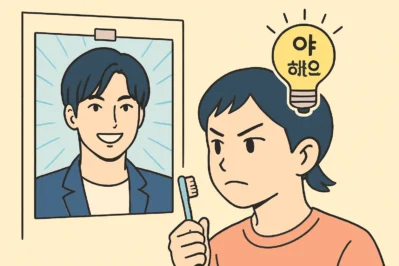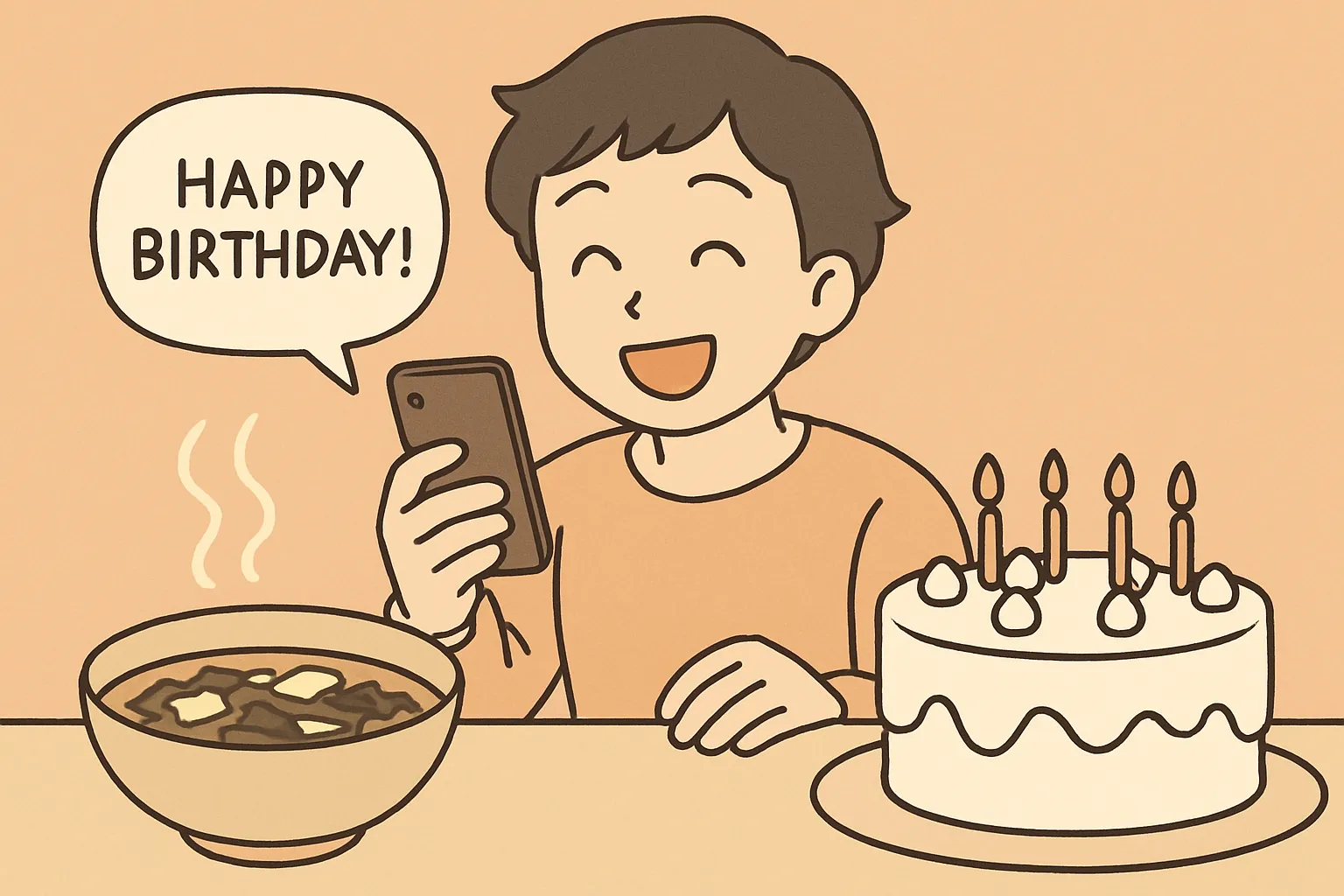Unlock K-Idol Smiles: You HAVE TO Learn This!
Hello! It’s your friendly Korean teacher from [Daily Hangul], here to upgrade your Korean skills!
Ever wonder how to say you have to or must do something in Korean? It’s one of the most useful expressions for daily life! Today, we’ll learn how to express obligation, and we’ll do it with a fun theme: brushing your teeth!
You might be thinking, “Brushing teeth?” Yes! Lately in Korea, having a bright, healthy smile like your favorite K-pop idol is a big trend. To get that smile, there’s one thing you absolutely have to do. Let’s learn how to say it in Korean!
Core Expressions: -(아/어)야 해요
This grammar pattern is attached to a verb stem and means “have to” or “must.” The form changes slightly depending on the verb’s last vowel.
1. Verb stem ends in ㅏ or ㅗ → -아야 해요
* Korean Expression: 가다 → 가야 해요
* Pronunciation [Romanized]: ga-ya hae-yo
* English Meaning: have to go
* Detailed Explanation: When the last vowel of the verb stem is ㅏ (as in 가다, ga-da, to go) or ㅗ (as in 보다, bo-da, to see), you add -아야 해요. It’s a common and natural way to talk about something you need to do. You can use it with friends or in polite situations.
2. Verb stem ends in other vowels (ㅓ, ㅜ, ㅣ, etc.) → -어야 해요
* Korean Expression: 먹다 → 먹어야 해요
* Pronunciation [Romanized]: meo-geo-ya hae-yo
* English Meaning: have to eat
* Detailed Explanation: For most other verbs, like 먹다 (meok-da, to eat) or 읽다 (ik-da, to read), you add -어야 해요. The principle is the same!
3. Verbs ending in 하다 → -해야 해요
* Korean Expression: 공부하다 → 공부해야 해요
* Pronunciation [Romanized]: gong-bu-hae-ya hae-yo
* English Meaning: have to study
* Detailed Explanation: This is a special rule for all the verbs that end in 하다 (ha-da, to do). Simply change 하다 to 해야 해요. This is super useful because so many Korean verbs use 하다!
Example Dialogue
Let’s see how this works in a real conversation!
- A: 지수 씨, 지금 뭐 해요? 우리 커피 마실까요?
- (Jisu, what are you doing now? Shall we drink coffee?)
- B: 미안해요. 지금은 안 돼요. 이를 닦아야 해요.
- (I’m sorry. I can’t right now. I have to brush my teeth.)
- A: 아, 그렇군요! 매일 꼼꼼하게 닦네요.
- (Oh, I see! You brush carefully every day.)
- B: 네! 저도 아이브의 장원영처럼 예쁜 미소를 갖고 싶어요!
- (Yes! I want to have a pretty smile like Jang Won-young from IVE!)
Culture Tip & Trend Deep Dive
In Korea, dental hygiene is taken very seriously! You’ll often see people, especially office workers and students, carrying a toothbrush and toothpaste in their bags.
There’s even a famous dental health campaign in Korea called the “3-3-3 Rule” (삼삼삼 법칙). It means you should:
1. Brush your teeth 3 times a day.
2. Brush within 3 minutes after eating.
3. Brush for at least 3 minutes.
So, when your Korean friend suddenly says “잠깐만요, 양치해야 해요!” (Wait a moment, I have to brush my teeth!) after lunch, don’t be surprised. It’s a totally normal and common part of daily culture. If you follow this rule, you’ll not only have a healthy smile but also look like a real local!
Wrap-up & Practice Time!
Great job today! You learned the essential pattern -(아/어)야 해요 to talk about things you have to do. We learned -아야 해요, -어야 해요, and -해야 해요.
Now, let’s test your knowledge!
Quiz: How would you say “I have to wash my hands” in Korean? The verb for “to wash” is 씻다 (ssit-da).
Fill in the blank:
손을 ________. (son-eul ________.)
Leave your answer in the comments below! We’d love to see you practice using the expressions you learned today. See you next time






